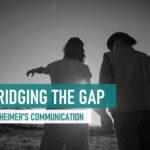Deep and enough sleep helps the brain convert new memories into long-term ones.
Are you having a bad sleep? Lying awake for hours can affect your memory. Again according to a study, 3-4 hours of “recovery sleep” may help repair the damage.
What actually happens…!
When you lack sleep or don’t sleep well, your brain suffers and struggles to convert information into long term memories. Five hours of sleep deprivation can reduce connections between neurons in the hippocampus, the area of the brain that’s associated with memory (research by University of Groningen in the Netherlands and the University of Pennsylvania).
When we sleep we experience NREM (non-rapid eye movement) sleep and REM (rapid eye movement). NREM is a deeper type of sleep and it helps the brain to store and consolidate memories. Both stages of sleep are important, but NREM sleep is thought to be more important for recovery from sleep loss. Sleep deprivation changes communication between neurons which affects memory.
Additional studies also have revealed that sleep suppresses dopamine, a neurotransmitter than can weaken memory retention. Sleep also boosts overall health.
“Sleep does more than rewire the brain. It also resets our metabolic systems and our immune systems,” – Ted Abel, the senior author of the study and new director of the Iowa Neuroscience Institute.
In short, sleep is for both the brain and the body.







